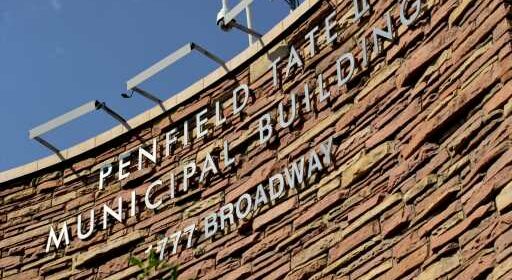Boulder City Council OKs partial moratorium on Police Oversight Panel work

Boulder City Council unanimously voted Thursday evening to approve the drafting of a partial moratorium on the work of the city’s Police Oversight Panel.
“I know it’s been a difficult time for the POP in recent months with some of the challenges they’ve been experiencing. It’s been challenging for the community as well,” said Mayor Aaron Brockett. “I would like for us to formalize a partial moratorium so that they can focus on making those changes to the city ordinance.”
Last month, the panel voted to suspend most of its operations after former panelist Lisa Sweeney-Miran was removed by City Council over allegations of bias. Panelists agreed that their priority was to make changes to the Police Oversight Ordinance, which governs the POP, and that they would stop considering new police oversight cases and other panel work not related to the ordinance for the time being. However, the panel has continued to review police oversight cases it had already committed to reviewing.
A partial moratorium passed by City Council would support the panel in pausing some of its work while possible changes to the ordinance are discussed. While the City Council didn’t vote on the moratorium at Thursday’s meeting, councilmembers generally agreed that some changes to the Police Oversight Ordinance may be necessary.
Councilmember Bob Yates said he was “struggling a little bit with the need for a partial moratorium.” The POP has a lot of work to do, he said, and any changes to the city ordinance would also not take effect immediately, with elections looming ahead in the fall.
Mayor Pro Tem Mark Wallach also expressed some ambivalence about the potential moratorium. Though he said he agreed with the need to revise the ordinance, he pointed out that City Council did not ask the board to stop working — the board made that determination on its own.
“I would have to ask, what would you do … if the planning board said, ‘We’re just not going to do our job?’” Wallach asked.
Despite their reluctance about the moratorium, Yates and Wallach voted along with their fellow councilmembers to approve its drafting in a 9-0 vote.
Additionally, City Council voted unanimously to remove Caroline Miller as a trustee on the Open Space Board of Trustees over allegations of non-attendance to her duties as a board member.
OSBT Chair Dave Kuntz said Miller had attended fewer than half of scheduled board meetings in the past six months with no leave of absence requested, and that she had failed to “consistently appropriately communicate as necessary.” At a special meeting on May 31, OSBT trustees passed a resolution on a 4-1 vote to recommend removing Miller, with Miller being the only person to vote against the recommendation.
Kuntz explained that the catalyst for the recommendation to remove Miller from the board had been a statement she made at a Nov. 9 meeting. He described the statement as “perplexing and difficult to understand,” but said that Miller had clearly made allegations toward members of OSBT, Open Space and Mountain Parks Department staff, and other city staff and city officials. She quoted Councilmember Rachel Friend several times during that statement.
Her allegations that certain actions by city employees and officials could be construed as “evidence of overt malfeasance” was seen as “threatening” by board members and staff, Kuntz said.
“The lack of resolution of Ms. Miller’s comments on Nov. 9 have affected the Open Space Board’s ability and capacity to function effectively,” said Kuntz.
Miller spoke at the meeting in her own defense. Tearfully, she said that if City Council votes to remove her from the board, she hoped to appeal her removal and ask for a hearing. She defended her actions at the Nov. 9 meeting, saying, “My actions were done because I felt it was absolutely necessary to protect the integrity of the board.” However, Kuntz noted her conduct at the Nov. 9 meeting was not part of the resolution to remove her.
Addressing her fellow trustees’ claims of non-attendance to duty, Miller said there were “no grounds based on absences to warrant my removal.” The official rule for absences, she said, was three consecutive meetings missed. She only missed two consecutive meetings, so the rule shouldn’t apply to her, and additional meetings that were not attendance requirements were “artificially bolstered” to give weight to the idea that she was in violation of the rule, she said.
Ultimately, City Council voted 8-0 for Miller’s removal from the board, agreeing with Kuntz’ assessment that Miller showed non-attendance to duty and was disrupting the board’s operations. Friend recused herself from the discussion and vote because she said she’d been “singled out and targeted” by Miller.
Get more Colorado news by signing up for our daily Your Morning Dozen email newsletter.
Source: Read Full Article